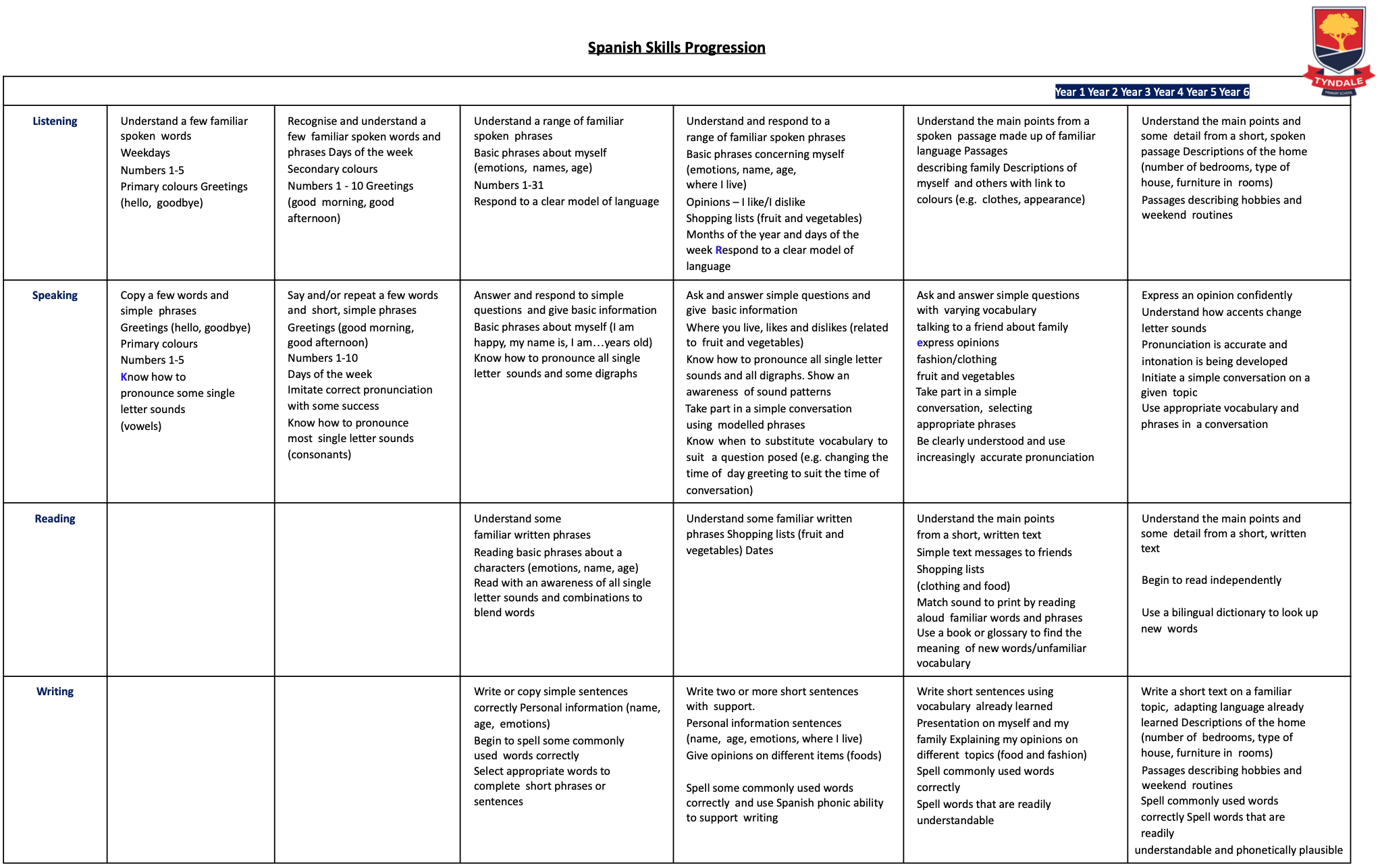PE & MFL (Spanish)
Physical Education
Intent
Approach
We know that it is through PE and sport that children learn and build their resilience. It is through sport that children learn that the more they practice, the more they improve. They also are encouraged to note their personal best rather than to compare themselves with others.
Physical education is taught by breaking down the skills and teaching these explicitly through modelling and plenty of individual and small group practice.
Physical activity features predominately in our playground. Children are offered plenty of physical resources to play with and physically challenge themselves with. We run daily sports clubs for children to attend. In addition, children complete a daily mile.
KS1
Key stage 1 children develop fundamental movement skills, become increasingly competent and confident and access a broad range of opportunities to extend their agility, balance and coordination, individually and with others. They will be able to engage in competitive (both against self and against others) and co-operative physical activities, in a range of increasingly challenging situations.
Children are taught to:
- master basic movements including running, jumping, throwing and catching, as well as developing balance, agility and co-ordination, and begin to apply these in a range of activities
- participate in team games, developing simple tactics for attacking and defending
- perform dances using simple movement patterns.
KS2
Our children continue to apply and develop a broader range of skills, learning how to use them in different ways and to link them to make actions and sequences of movement. They enjoy communicating, collaborating and competing with each other. Children develop an understanding of how to improve in different physical activities and sports and learn how to evaluate and recognise their own success.
Children are taught to:
- use running, jumping, throwing and catching in isolation and in combination
- play competitive games, modified where appropriate and apply basic principles suitable for attacking and defending
- develop flexibility, strength, technique, control and balance (through athletics and gymnastics)
- perform dances using a range of movement patterns
- take part in outdoor and adventurous activity challenges both individually and within a team
- compare their performances with previous ones and demonstrate improvement to achieve their personal best.
PE Whole School Curriculum Map
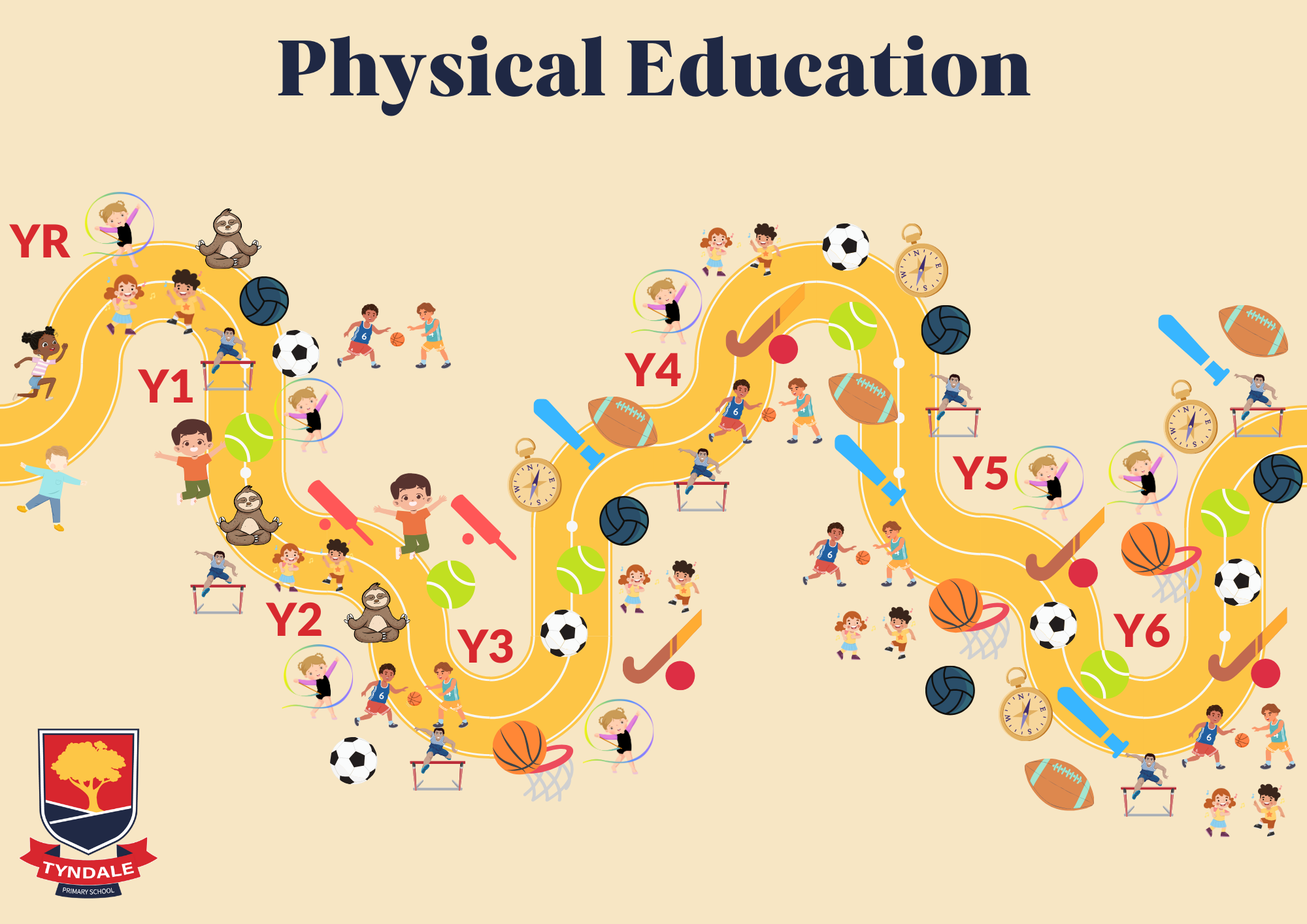
PE Skills Progression
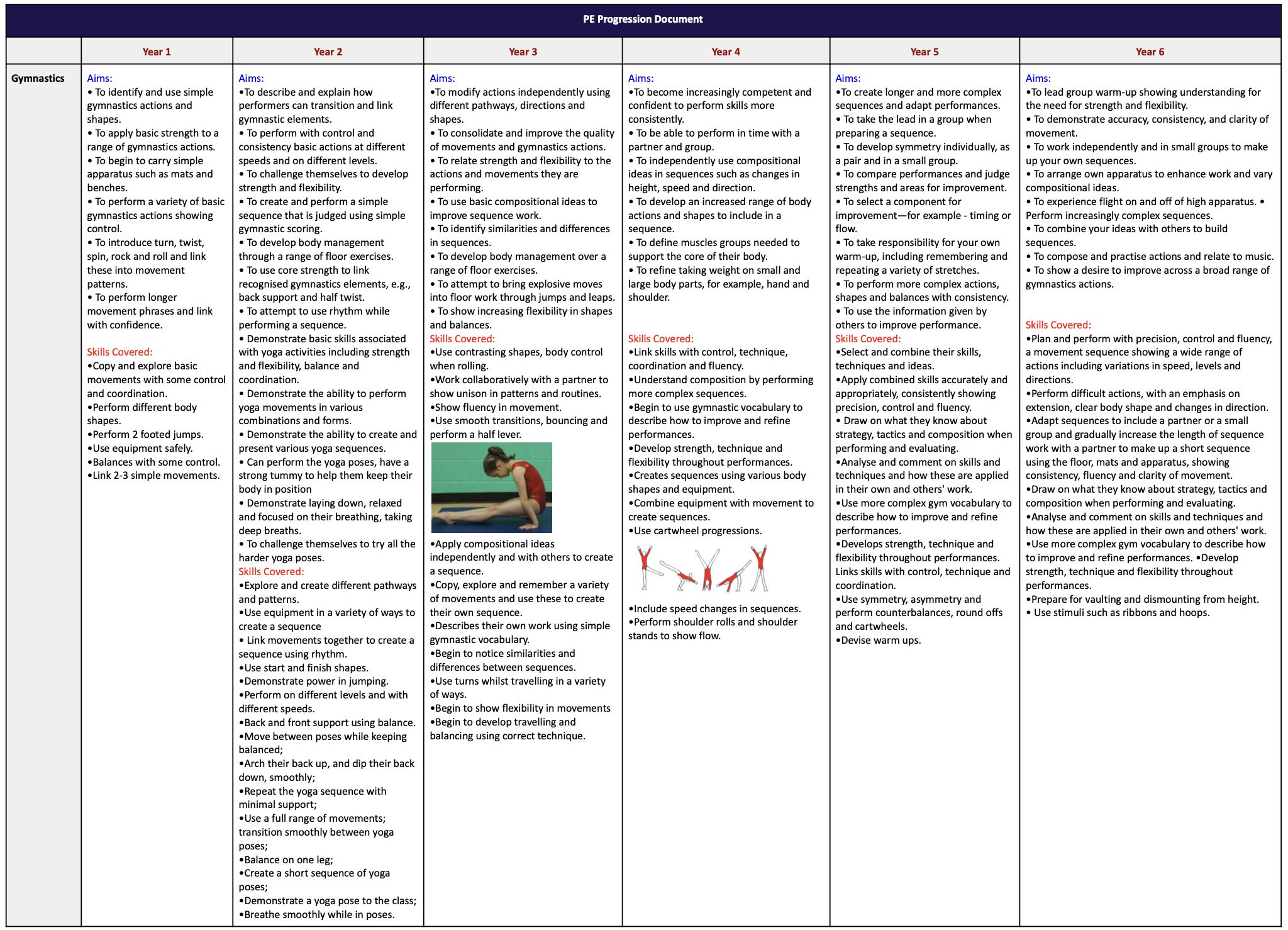
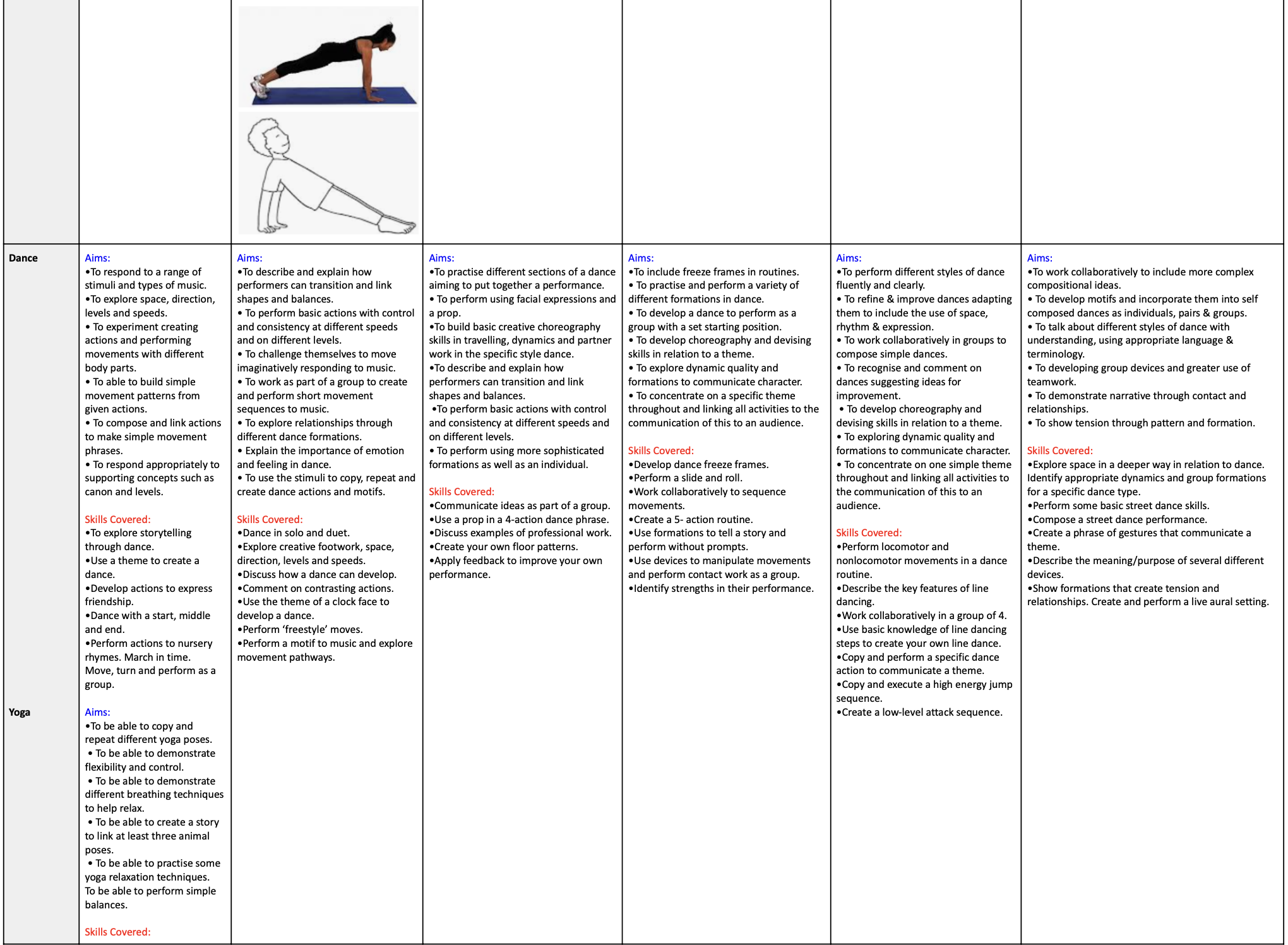
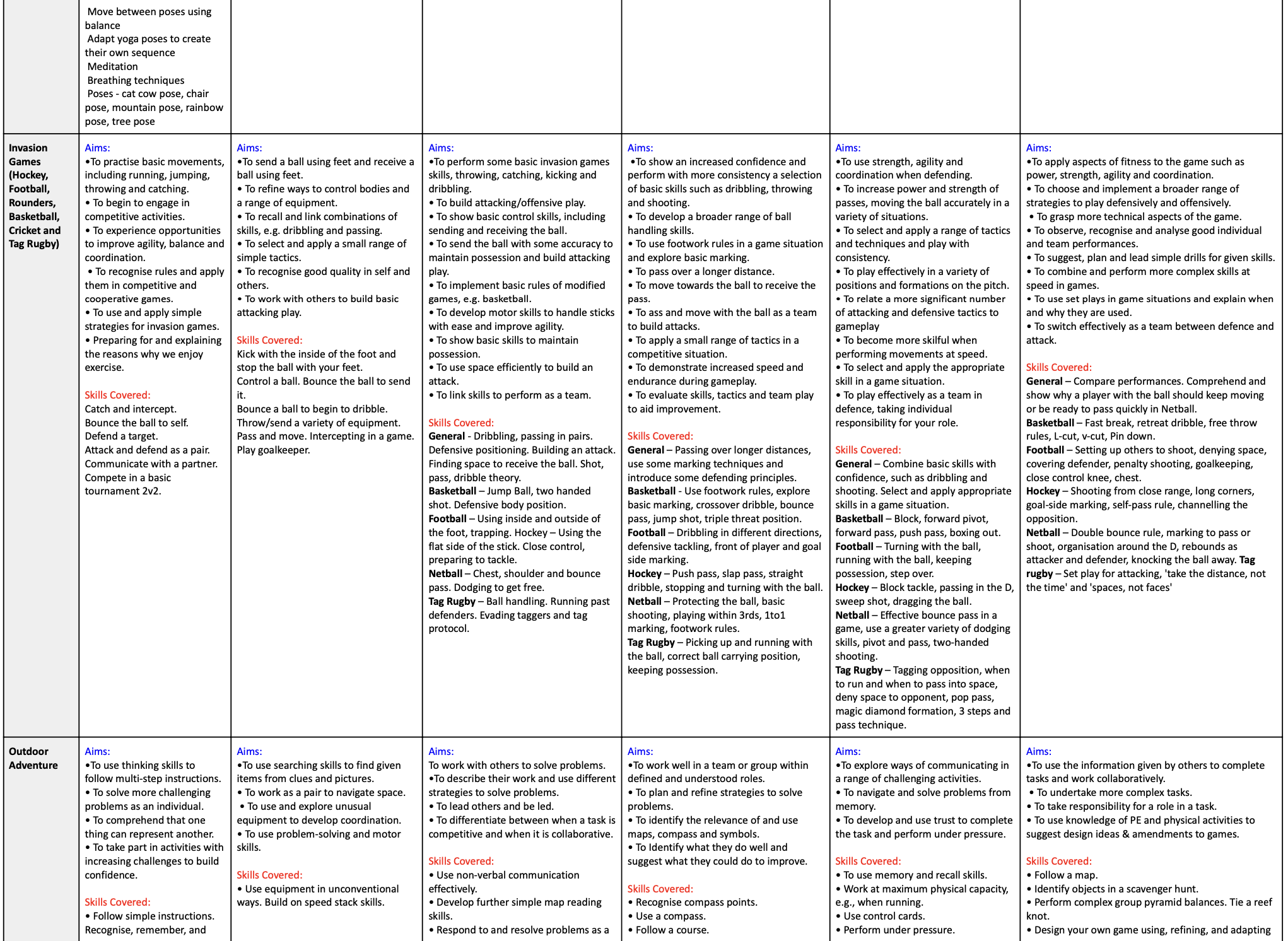
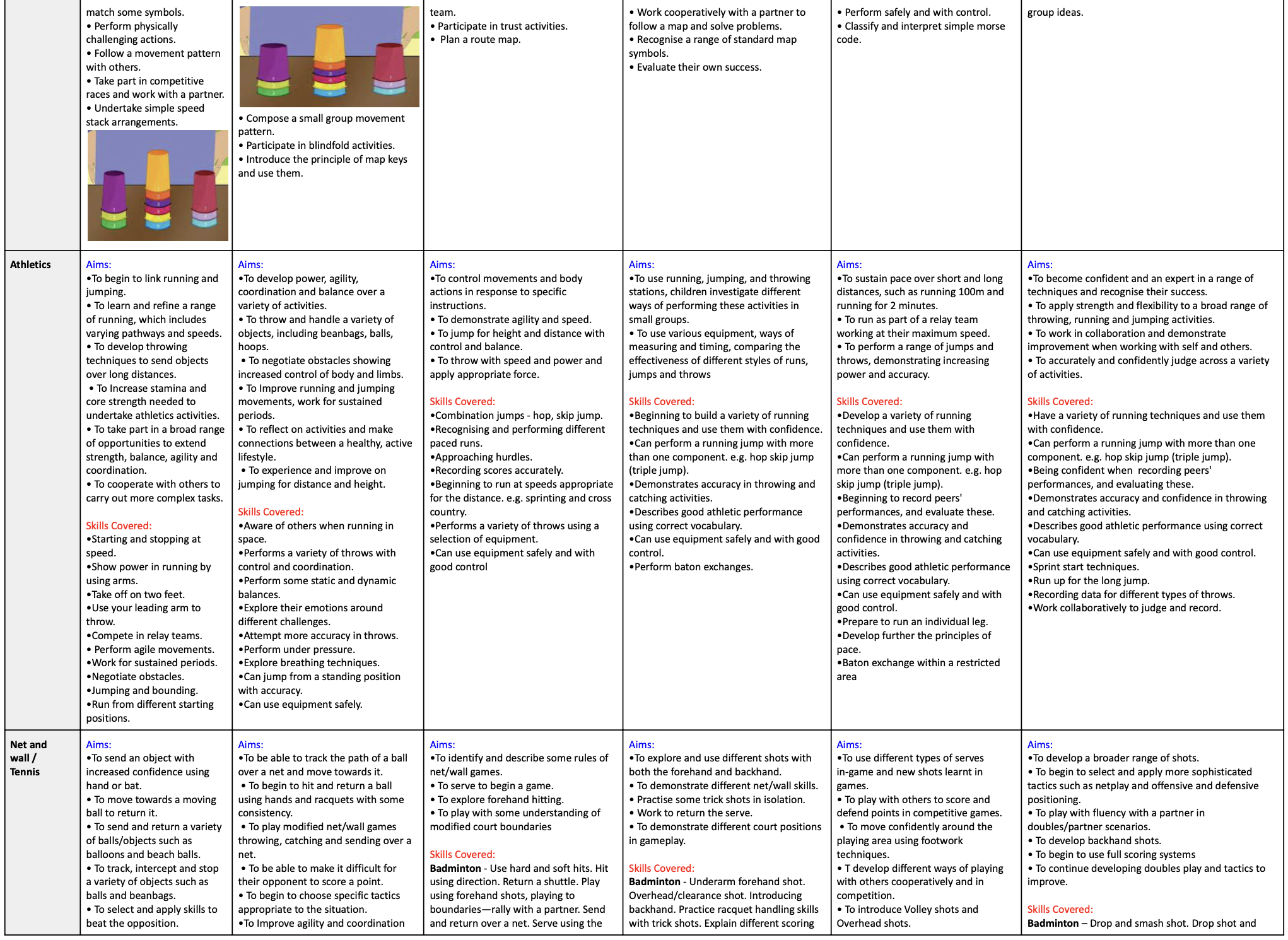
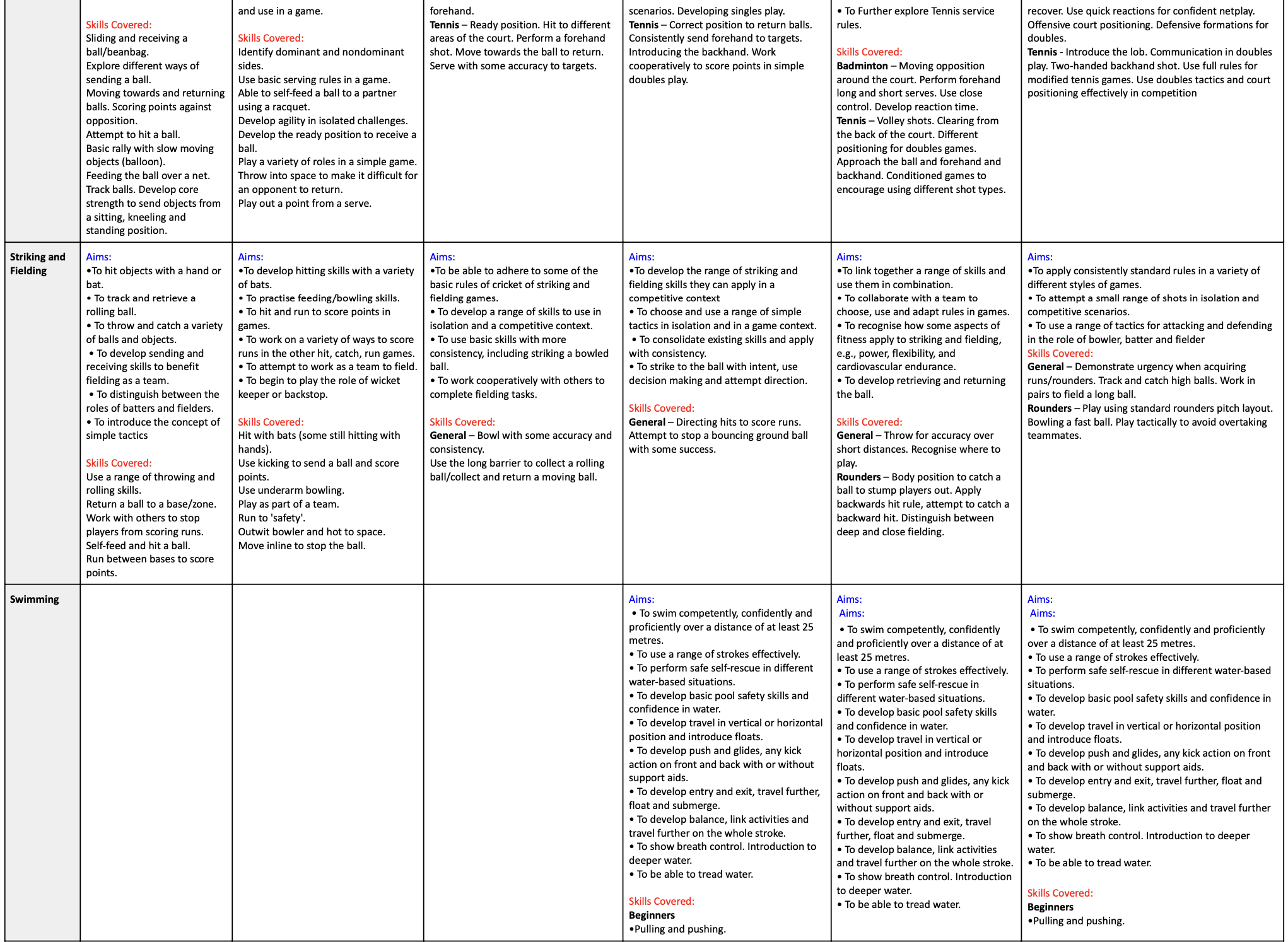
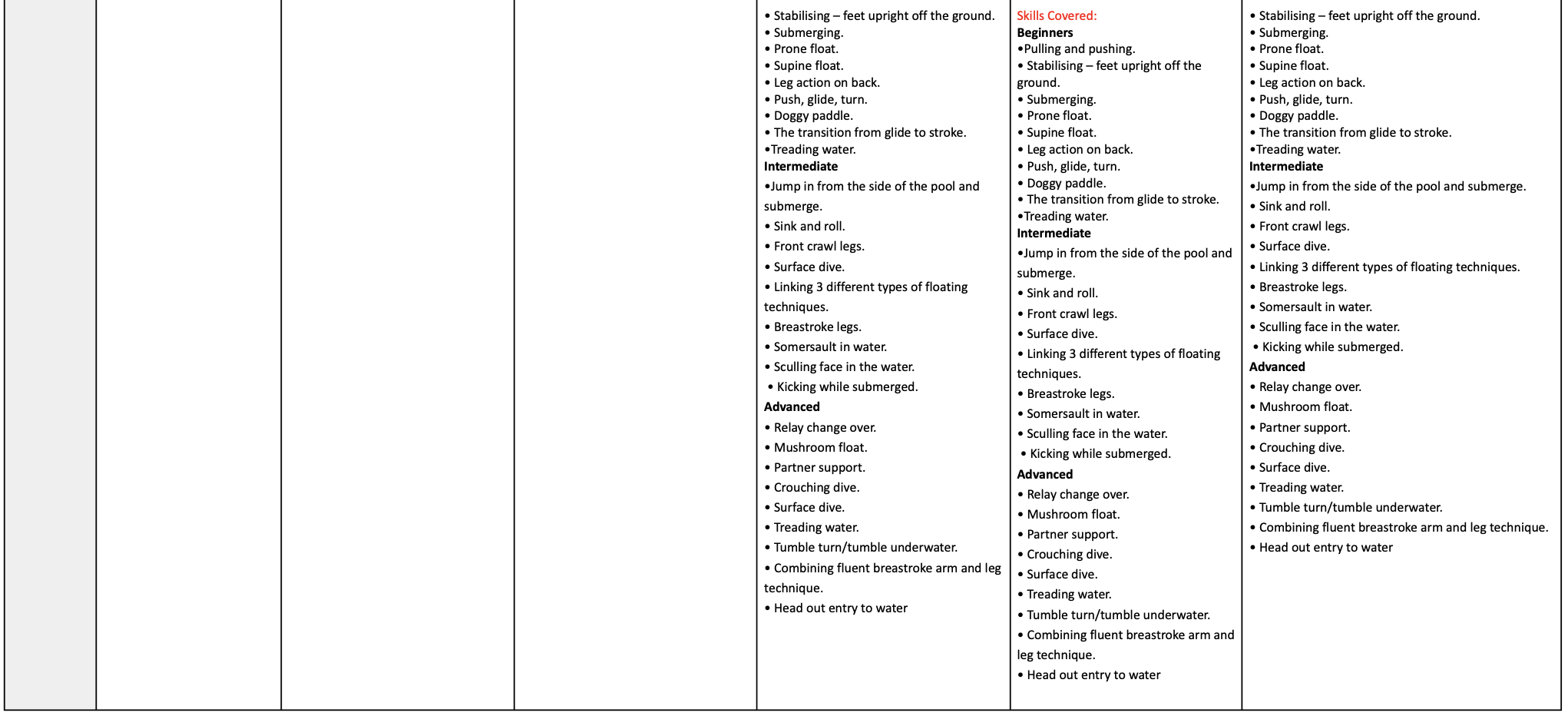
MFL - Spanish
Intent
At Tyndale Primary School, we value Modern Foreign Languages as an important part of our children’s entitlement to a broad and balanced curriculum. MFL provides our children with knowledge about varying cultures around the globe, the geography and traditions intrinsic to these countries, and the communication skills to flourish in our modern, highly connected world. Through careful teaching and regular application, our children learn to speak and write accurately and effectively in Spanish.
Approach
This curriculum is not just for language development, as it will also endeavour to develop the children’s sense of global identity and understanding of the countries that speak this language and what life is like, through exploring traditions, customs, geographical features, prominent figures, tourism and much more.
We teach new vocabulary in small steps and at each step provide ample opportunity for children to practice it, both orally and in writing. We encourage children to ask and answer questions in Spanish, to add to the full immersive experience.
Spanish Whole School Curriculum Map
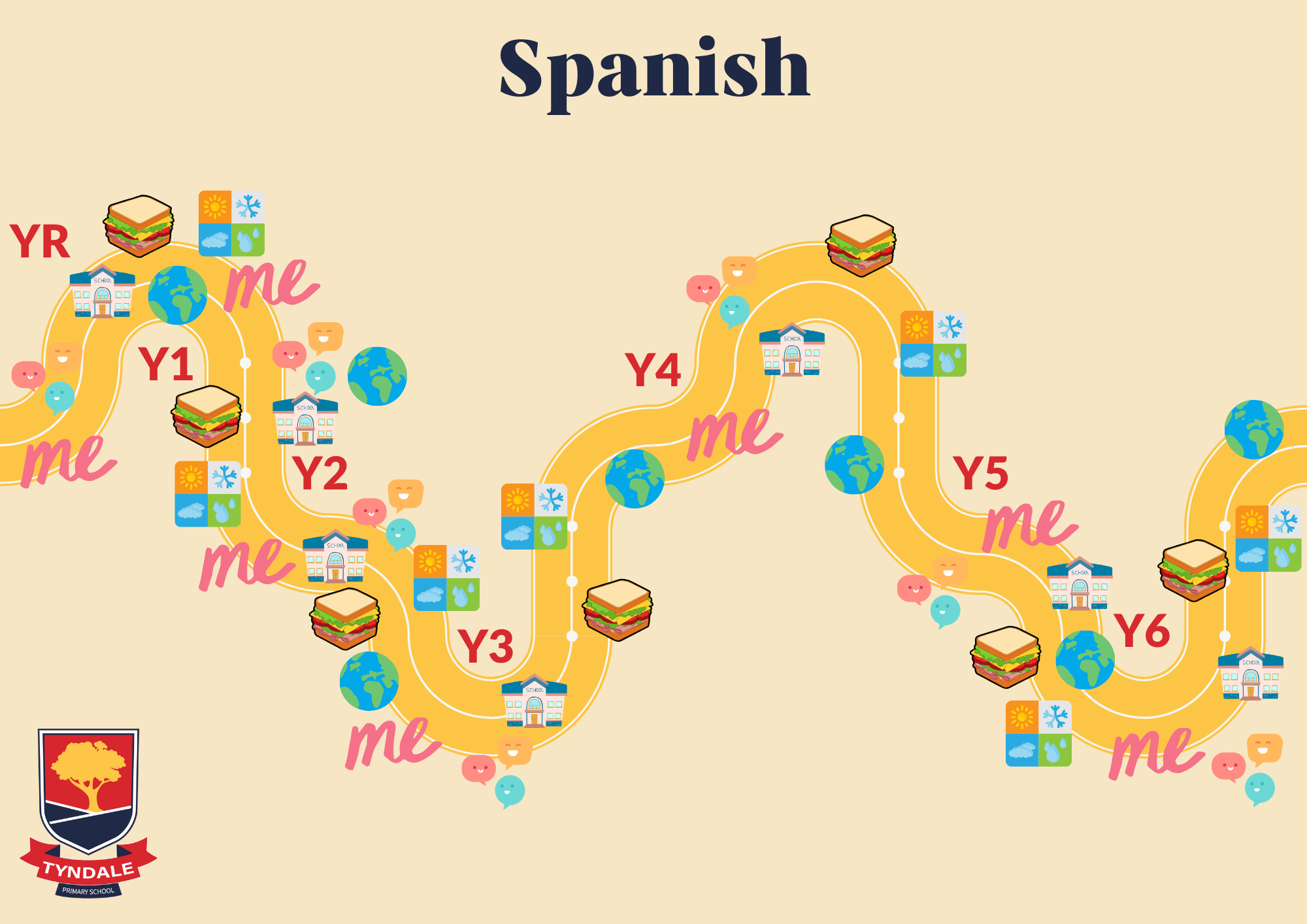
Spanish Skills Progression
